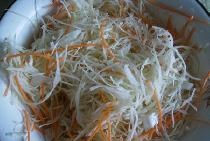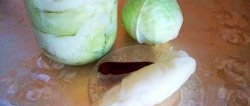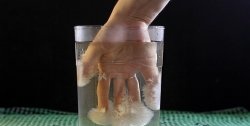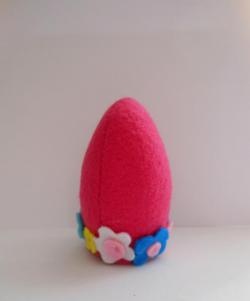5 Best Natural Dyes for Easter Eggs
If you want to make Easter dyes, you don't have to resort to chemical dyes. In every kitchen there are available ingredients that will color eggs in bright and rich shades.
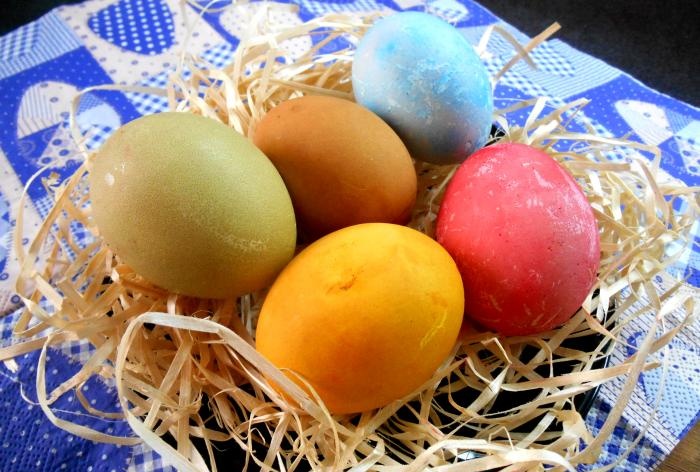
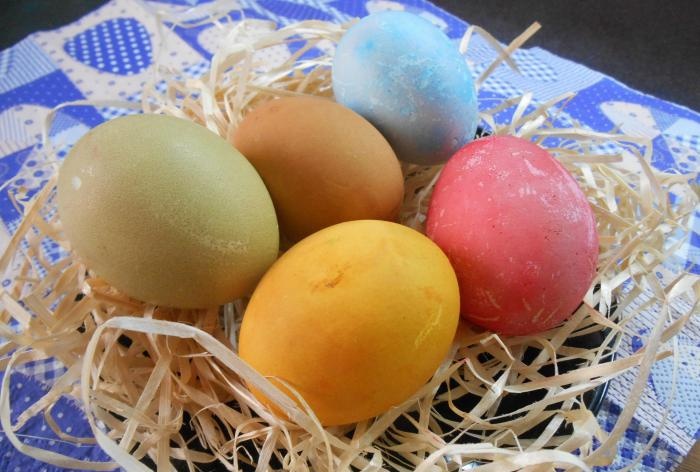
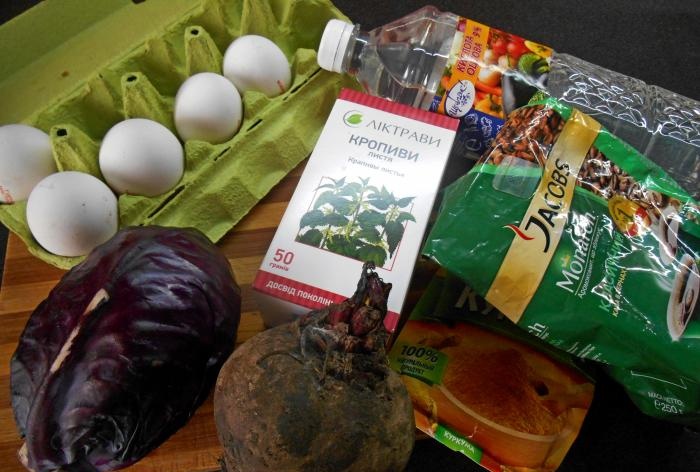
Red cabbage produces a beautiful blue hue. But it’s worth spending a little time, since the color does not appear immediately, but only after the solution has cooled.
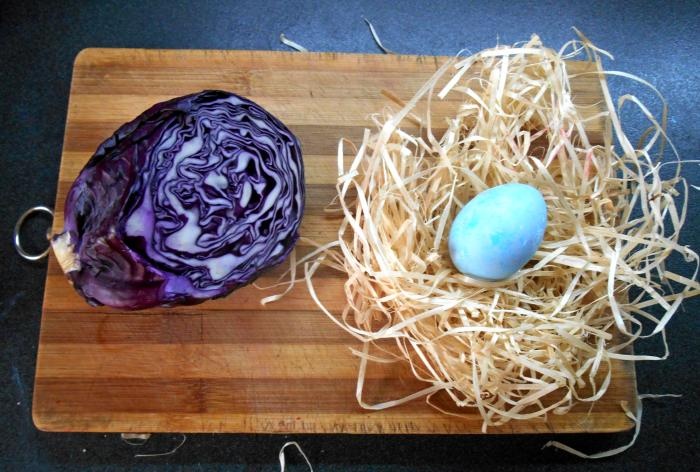
Grind the red cabbage on a grater. Pour cold water over the cabbage. Place the egg in the resulting solution. Add vinegar. Boil the egg until done. Leave the boiled egg in the solution until it cools completely.
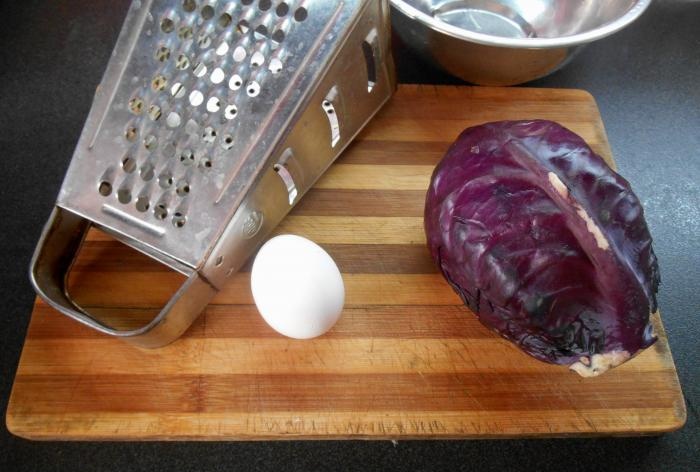
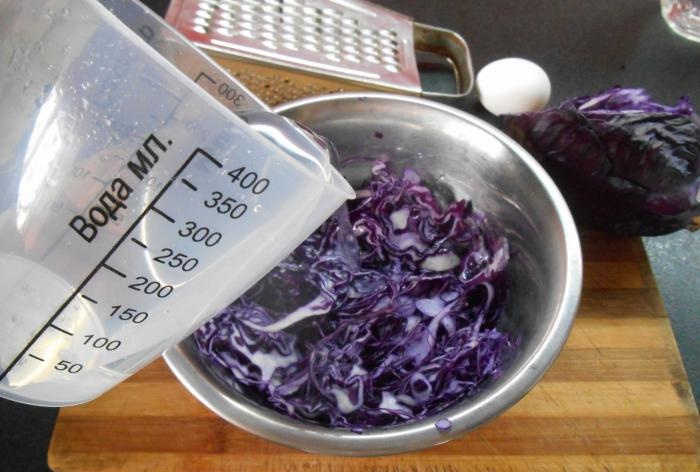
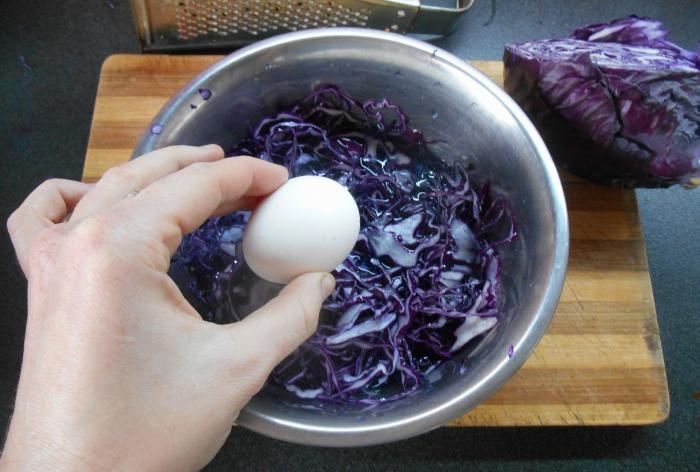
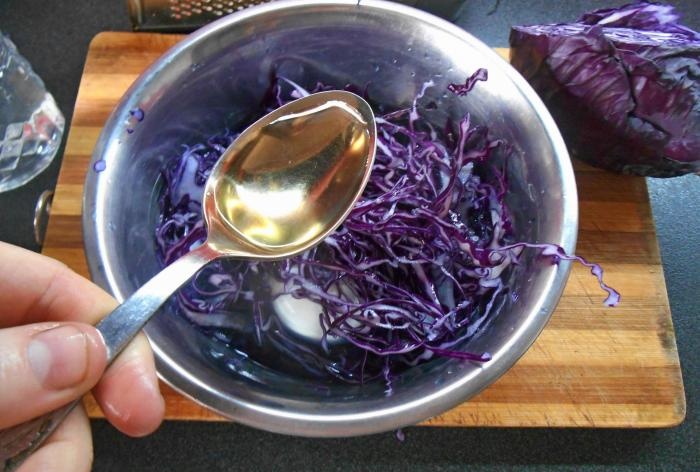
Beetroot colors the egg shades of pink. But there is one subtlety - under no circumstances should you cook the solution.
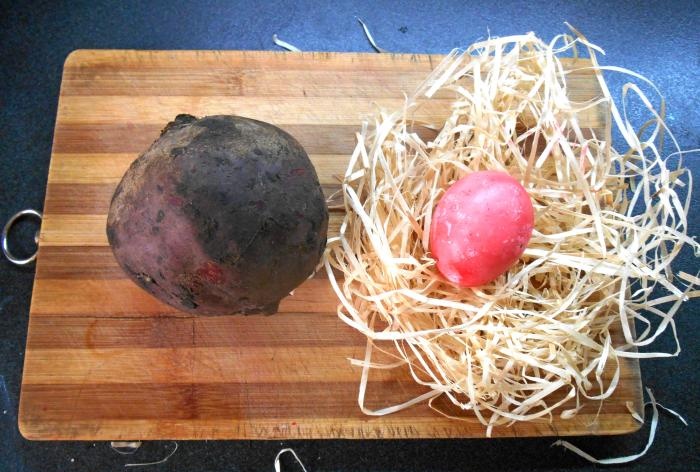
Grind the beets on a grater. Pour in water and add vinegar to the resulting solution. Place the already boiled egg into the container so that it is completely covered with the solution. Leave for at least 30 minutes.
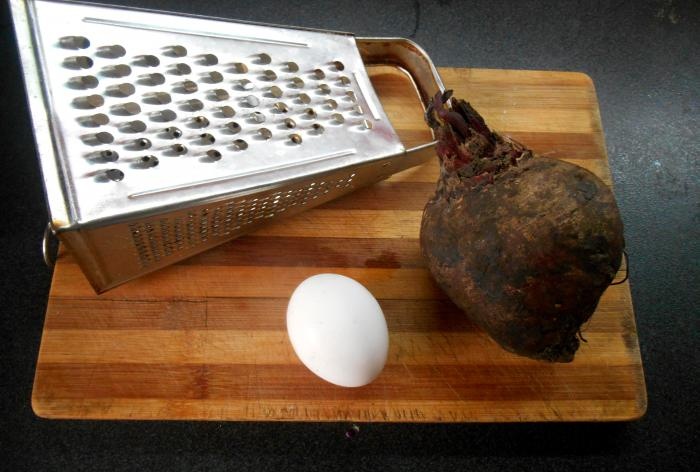
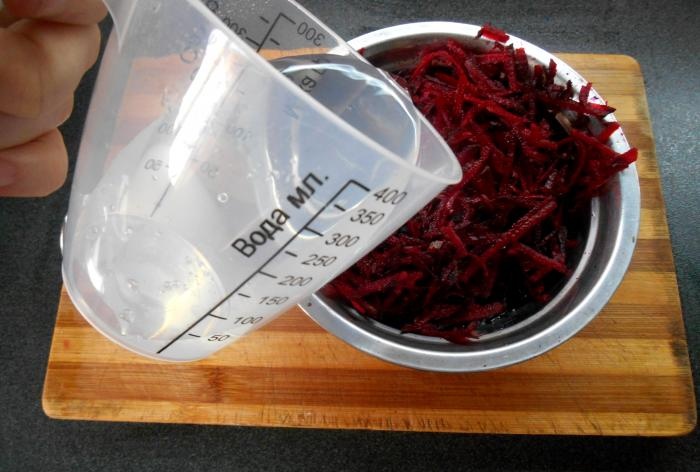
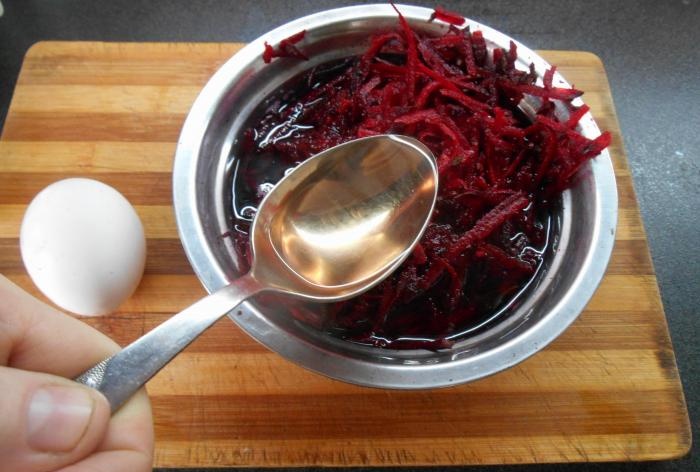
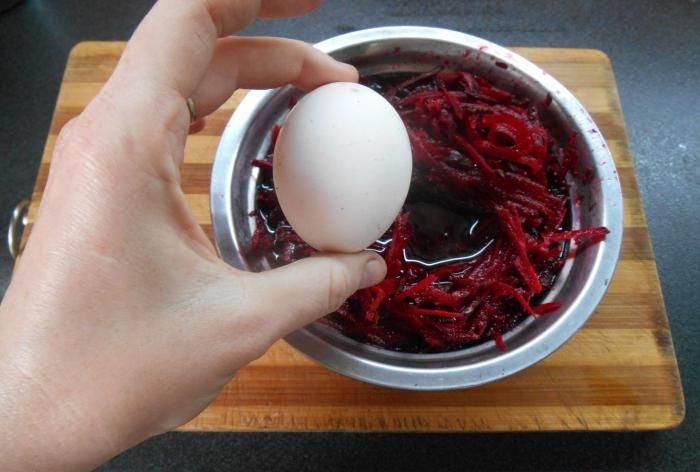
Nettle produces a beautiful light green hue. When coloring eggs, you should use only dry nettle, which can be purchased at the pharmacy. By boiling fresh nettle stems and leaves, you, unfortunately, will not get the solution of the desired color.
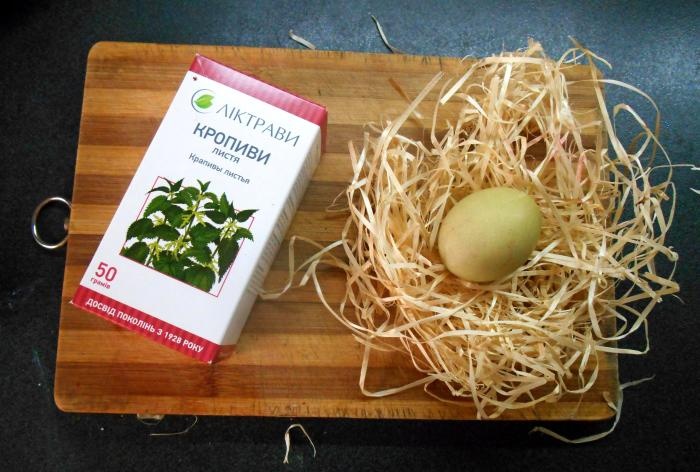
Place crushed dried nettles in a deep container. Place the egg there and pour in the specified amount of water. Simmer the solution over low heat for 6 minutes. Leave the egg in the solution until it cools completely.
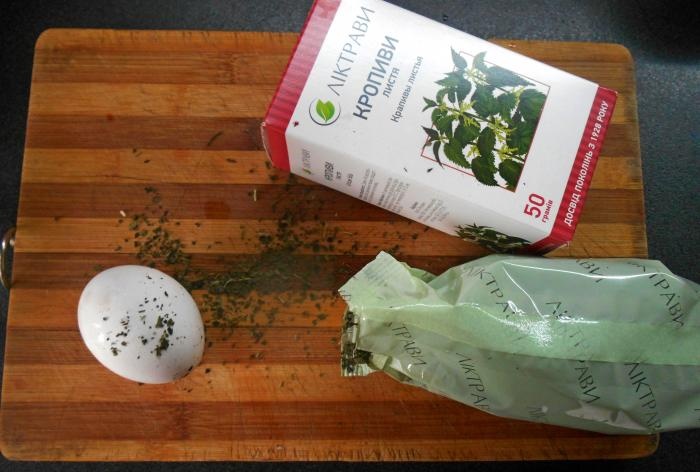
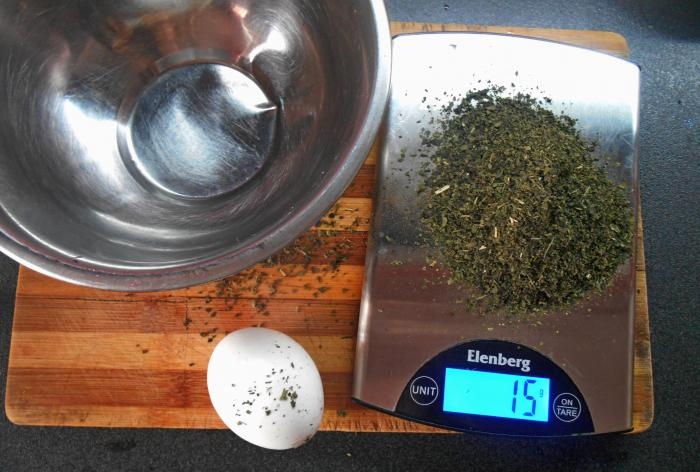
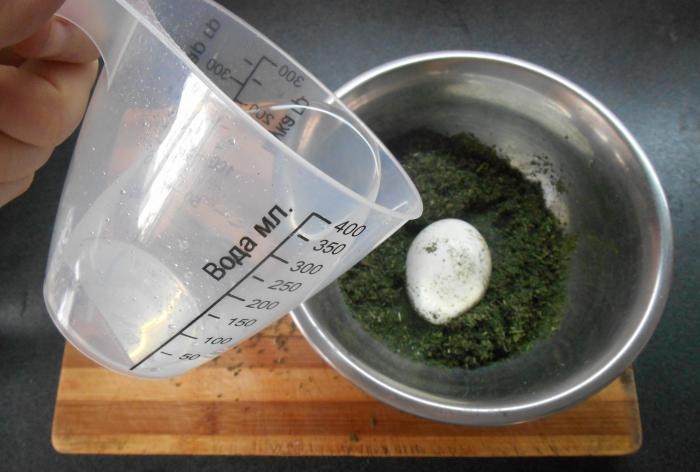
The coffee solution quickly and evenly colors the eggs a chocolate color. The result can be observed already when the water boils.
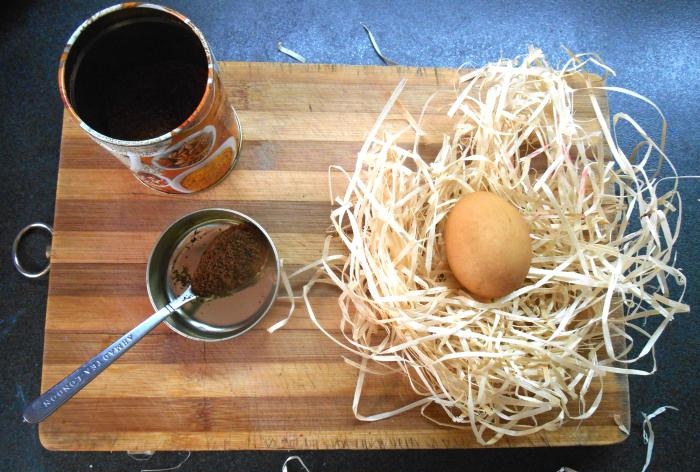
Pour ground coffee into a saucepan. Pour in water and place the egg in the solution. Cook until done. You can immediately remove the egg from the solution or leave it until it cools completely to obtain a darker and richer color.
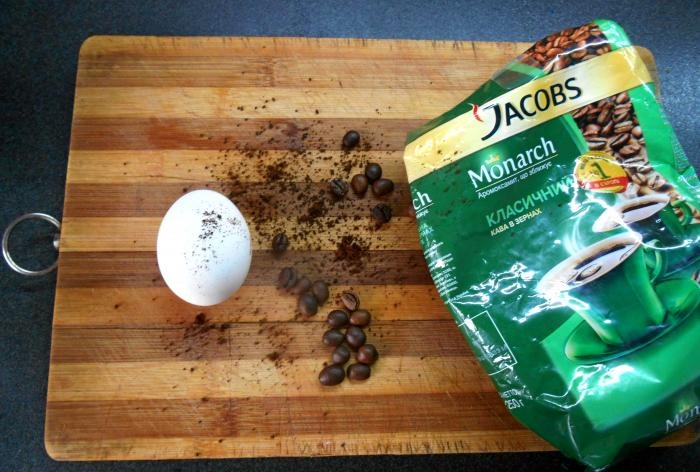
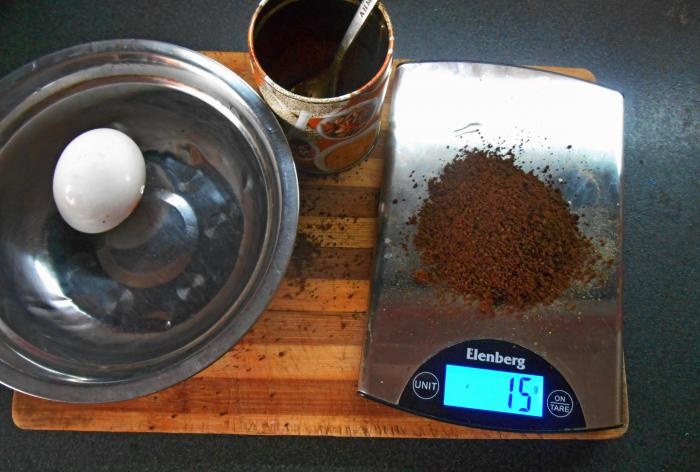
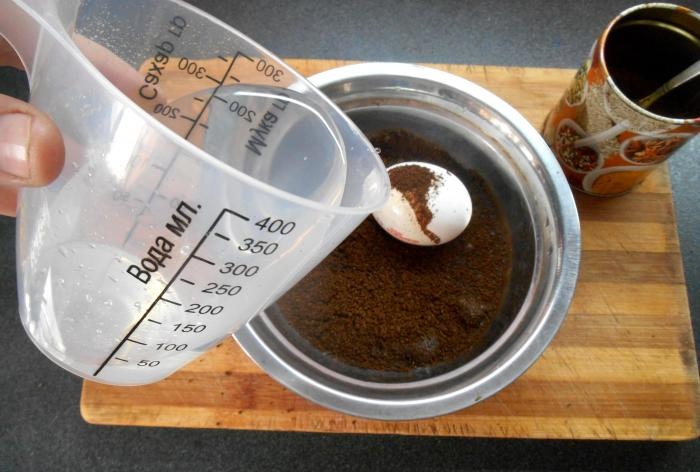
Turmeric gives a velvety and bright yellow color that appears immediately when water boils. To achieve a richer color, do not remove the eggs from the solution immediately after cooking.
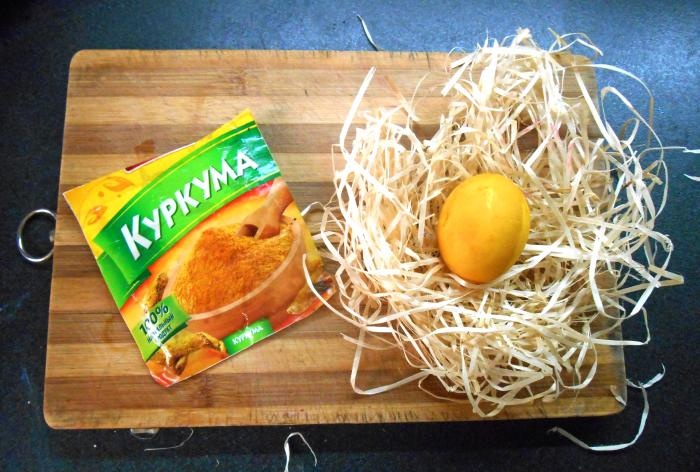
Place turmeric powder in a deep container. Place the egg there and fill it with water. Cook over low heat. Leave the boiled egg in the solution for 30 minutes.
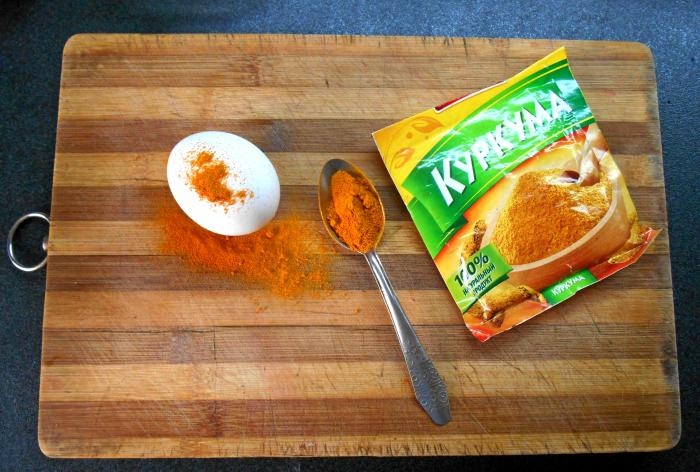
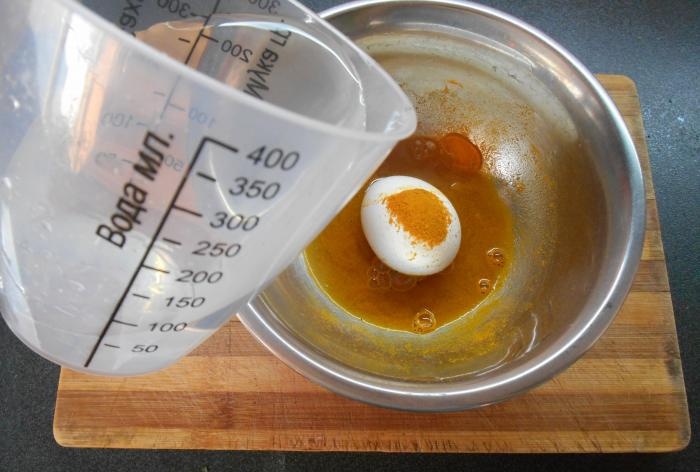
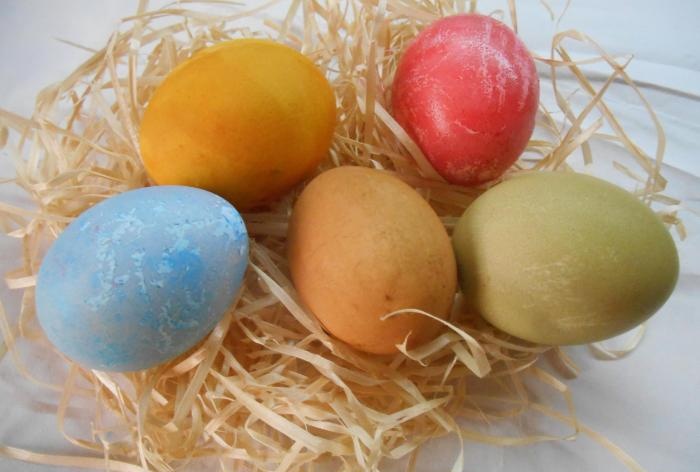
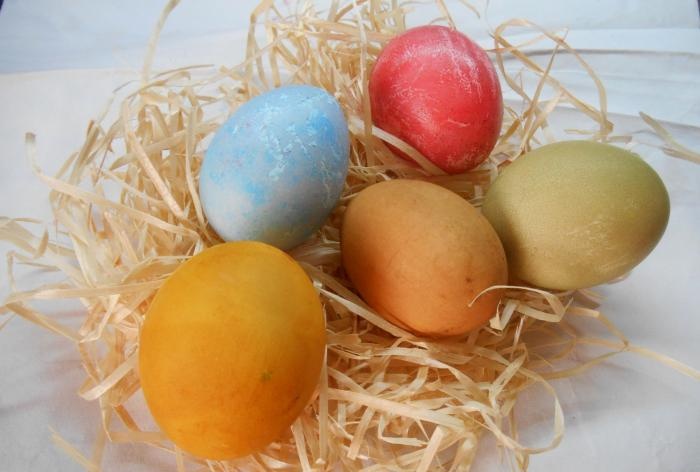



Blue – red cabbage
Red cabbage produces a beautiful blue hue. But it’s worth spending a little time, since the color does not appear immediately, but only after the solution has cooled.

- 80 g red cabbage,
- 250 ml water,
- 2 tbsp. spoons of vinegar (9%).
Grind the red cabbage on a grater. Pour cold water over the cabbage. Place the egg in the resulting solution. Add vinegar. Boil the egg until done. Leave the boiled egg in the solution until it cools completely.




Red, pink – beets
Beetroot colors the egg shades of pink. But there is one subtlety - under no circumstances should you cook the solution.

- 200 g fresh beets,
- 250 ml water,
- 2 tbsp. spoons of vinegar (9%).
Grind the beets on a grater. Pour in water and add vinegar to the resulting solution. Place the already boiled egg into the container so that it is completely covered with the solution. Leave for at least 30 minutes.




Green – nettle
Nettle produces a beautiful light green hue. When coloring eggs, you should use only dry nettle, which can be purchased at the pharmacy. By boiling fresh nettle stems and leaves, you, unfortunately, will not get the solution of the desired color.

- 15 g dried nettle,
- 250 ml water.
Place crushed dried nettles in a deep container. Place the egg there and pour in the specified amount of water. Simmer the solution over low heat for 6 minutes. Leave the egg in the solution until it cools completely.



Brown – coffee
The coffee solution quickly and evenly colors the eggs a chocolate color. The result can be observed already when the water boils.

- 15 g ground coffee,
- 250 ml water.
Pour ground coffee into a saucepan. Pour in water and place the egg in the solution. Cook until done. You can immediately remove the egg from the solution or leave it until it cools completely to obtain a darker and richer color.



Yellow – turmeric
Turmeric gives a velvety and bright yellow color that appears immediately when water boils. To achieve a richer color, do not remove the eggs from the solution immediately after cooking.

- 15 g turmeric,
- 250 ml water.
Place turmeric powder in a deep container. Place the egg there and fill it with water. Cook over low heat. Leave the boiled egg in the solution for 30 minutes.




Similar master classes
Particularly interesting
Comments (2)


